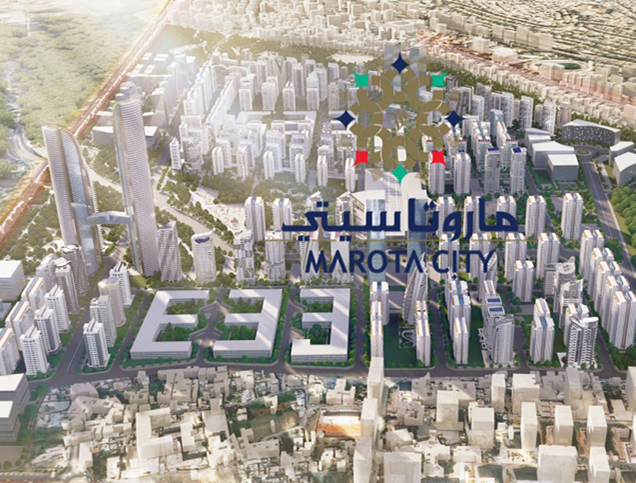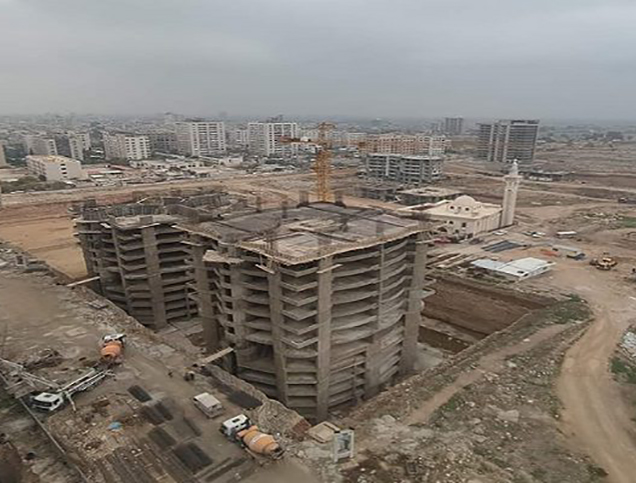
Close

Approach Words: Attractive City, Integrated City, Smart City
Public Policy Instruments: Organization, Physical Intervention, Planning, Regulatory
Marota City is a post-war urban redevelopment project under construction in Damascus, Syria1. Based on the Arabic word ‘Syriac’ which translates to ‘sovereignty’2, ‘it represents Syria’s largest investment project3 and a potential model of future government-led reconstruction projects in the country4. Its goal is to contribute to Damascus’ ‘re-emergence on the international stage’ by creating a ‘landmark commercial center’ in the capital5.

Title: Marota City masterplan.
Source: Click Here

Title: Aerial 3D rendering of Marota City.
Source: Click Here

Title: 3D visualization of Marota City.
Source: Click Here

Title: Marota City under implementation.
Source: Click Here
The new luxury district spreads over a 2.14 square kilometers site in southwest Damascus, on the former Basatin al-Razi working-class neighborhood6. It is strategically located on the major transport routes to Lebanon, Jordan, and the airport, and is close to key governmental, medical, service, and educational centers of the capital7. Its masterplan includes luxury residential high-rises, shopping centers, gardens, sports facilities, administrative and commercial buildings8, designed to house around 60,000 residents when complete9. The project also includes two health centers, a fire station, 17 schools and kindergartens, five places of worship, and a floor car park10 i.

Owner/Developer (Public)

Owner/Developer

Consultant/Designer

Funder

Contractor/Implementer
The project incorporates smart city elements with modern infrastructure, such as underground tunnels, gas pipelines, and service control centers11. Through this project, the government aims to create employment opportunities, with 110,000 jobs during construction and 27,000 permanent jobs completed12.
Initiated in 2012 under Decree No. 66 of 2012, which targets slum redevelopment in the capital, project implementation was initiated in mid-201713. The joint-stock company Damascus Cham Holding Private JSC, established in 2016 and owned by the Damascus governorate, manages the development14. Law No. 10, passed in 2018, facilitated the project by organizing compensation for former informal owners who initially were given 30 days to prove ownership of their properties in the redevelopment zone15.
Under Decree 66, the project unfolded in three key phases:
Project Link
Endnotes
References